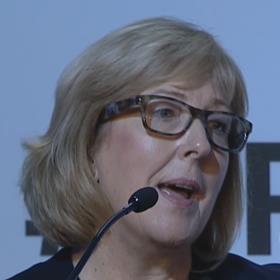By Fiona Reynolds (@fireynolds), Chief Executive Officer, the PRI

If we look back 10 years ago to the early days of the PRI, the investment industry was largely an opaque business with little transparency for anyone seeking to learn more about how investors were incorporating ESG factors into their investment processes. While there is still room for improvement in this regard, the founding of the PRI and its annual signatory reporting requirement has helped to spur the growth of responsible investment and to shed light on investors’ responsible investment practices.
The PRI’s Reporting Framework is the largest global reporting project on responsible investment, and it’s not just a transparency tool - it also offers a range of benefits to signatories and the market as a whole. Through the reporting process, signatories can benchmark their performance against peers, receive ongoing feedback and tools for improvement, and use this information to ultimately drive positive change throughout their organisations. The reporting data also helps us to understand global market trends through aggregate data analysis of signatory information.
The Reporting Framework has come a long way since its launch in 2012. Thanks largely to input from signatories, we introduced an annual assessment for investors shortly after the launch, we have developed reporting for service providers, and created the Data Portal to make all reported data more accessible and useful in investment processes, particularly for asset owners. We also introduced climate change reporting based on the TCFD recommendations and enforced minimum signatory requirements through the Reporting Framework.
While reporting may require time and effort, signatories continue to signal the value-add of the process – and often say that it gets easier year-on-year. We’re hearing, among other things, that signatories use reporting as a learning tool, to showcase what they’re doing on responsible investment, to aid the investment manager selection process, to set up their internal processes, and for gap analysis.
However, as the responsible investment market continues to evolve, signatories’ needs are also changing. As per our commitment when we launched our Blueprint for Responsible Investment, it’s now time to re-evaluate the Reporting Framework, to ensure that it remains useful and relevant to signatories and the industry at large.
This is why we’re asking signatories to have their say on the future of the reporting and assessment through this survey. If there’s one thing that all signatories are affected by, it’s reporting. This should be a great motivator for all signatories – old and new – to participate. It’s part of an extensive review that will cover the Reporting Framework itself as well its various outputs and tools, within the broader context of the responsible investment reporting landscape and the need to drive more meaningful data throughout markets.
As well as the survey, we’re hosting workshops with signatories in 17 cities, to kick-start these vital conversations and collect in-person feedback about what the future of reporting should look like. Without exception, audiences so far have been engaged and keen to share their views on how they use reporting - the pros and the cons - and put forward ideas to take reporting to the next level of development.
How to get involved
We want to hear from as many signatories as possible and I strongly encourage all signatories to have your say by taking the survey; the deadline is 30 April.
Signatories in the regions where we’re hosting the workshops have already been notified about them via email, but please contact us if you have any questions. Where we can’t be present in person, we will arrange interactive webinars.
This is an important time for the PRI and we hope that our signatories will embrace the significance of the consultation and take the opportunity to have an impact on the future of reporting and assessment.








